 If you asked any designer, they would probably list Google's logo among the ugliest of any brand. In a world where it is en vogue to change logos and corporate positioning each time a new CMO starts his or her tenure – Google has not only held on to their ugly logo, but also made it into one of the world's most recognized corporate icons (UPDATE – the World's Most Valuable Brand as well!). Clearly consistency is has been one of Google's more obvious branding secrets, but what else might you learn from Google about marketing?
If you asked any designer, they would probably list Google's logo among the ugliest of any brand. In a world where it is en vogue to change logos and corporate positioning each time a new CMO starts his or her tenure – Google has not only held on to their ugly logo, but also made it into one of the world's most recognized corporate icons (UPDATE – the World's Most Valuable Brand as well!). Clearly consistency is has been one of Google's more obvious branding secrets, but what else might you learn from Google about marketing?
1. Be consistent, not paranoid.
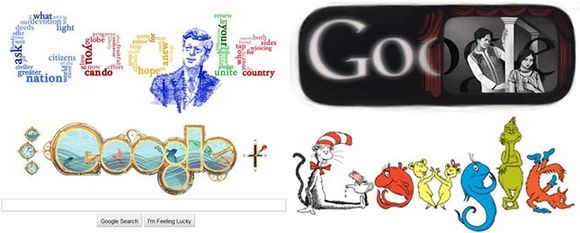
While Google has been remarkably consistent with their logo, they also enjoy regularly playing with the logo in various ways to celebrate moments like Dr. Seuss' birthday or the first Indian movie with sound that arguably launched the Bollywood industry. The Doodle4Google project is another example, where a competition for schoolkids to create their own versions of the logo allows winners to be featured on the homepage for millions to see. The point this makes is that even with a consistent brand image, they are not afraid to venture outside of typical "brand guidelines." In many ways, allowing their logo to be "remixed" in various ways ADDS to their brand strength instead of diluting it.
 2. Share an understandable mission.
2. Share an understandable mission.
Google's first stated mission has become almost legendary for its simplicity and non-corporate feeling … "don't be evil." An undeniable jab at the monopolistic Microsoft of the time when Google was first founded, this simple focus on sharing what they actually do through natural language has continued at Google. Despite yesterday's setback in their goal of digitizing every book ever published – Google has stayed true to their own mandate of "organizing the world's information." Even last week, when they launched the new Google for Nonprofits program, the topline message was clear: "You're changing the world. We want to help. No jargon or doublespeak – just clear understandable mission statements.
3. Reinforce the brand suite.

Google is a product company, and as such they develop new products all the time and famously offer their engineers and staffers enough free time as part of their roles to dream up the next big thing. When they do launch a new product, it typically has "Google" in front of it and a design that is recognizable and fits into their "suite" of products. As a result, users get the sense that all of these products are designed to work together and that there will be an advantage if you already use one to start using another. This is critical to get them to adopt using new products which may replace other tools they are used to using which are developed by other companies.
4. Don't rush to rebrand acquisitions.
Along their growth path, Google has invested in several big acquisitions. The largest three would surely be Blogger (a blogging platform), Picasa (a photo sharing platform) and YouTube. Each has retained their own branding and identity, and Google has resisted the temptation to rebrand each or bring them directly into the brand suite of Google. Making this choice allows them to maintain the relationships that people may be built up with each of those brands and offer new services or functionality that are complimentary to what people are already using – instead of being dictatorial about forcing users to use a new tool … Google can keep the goodwill and userbase of an acquisition in a way that most larger brands could not.
5. Be brutal about brand simplicity.
 A hallmark for Google since their founding has been the simplicity of their design approach. From their choice to not have any distractions on their homepage except a single field and the search button, Google has succeeded in part because of their simplicity. There are recent signs, such as their slight redesign of the Google Chrome logo, that this philosophy is moving into a deeply held corporate value that will assert itself in many ways .. . not least of which is making sure that every piece of identity remains uncomplicated and as simple as possible.
A hallmark for Google since their founding has been the simplicity of their design approach. From their choice to not have any distractions on their homepage except a single field and the search button, Google has succeeded in part because of their simplicity. There are recent signs, such as their slight redesign of the Google Chrome logo, that this philosophy is moving into a deeply held corporate value that will assert itself in many ways .. . not least of which is making sure that every piece of identity remains uncomplicated and as simple as possible.
*Image Credit: "Don't Be Evil" Image from https://noranajohar.blogspot.com/2009_05_01_archive.html







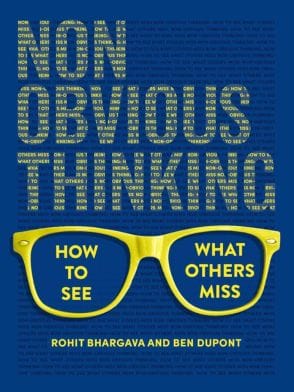

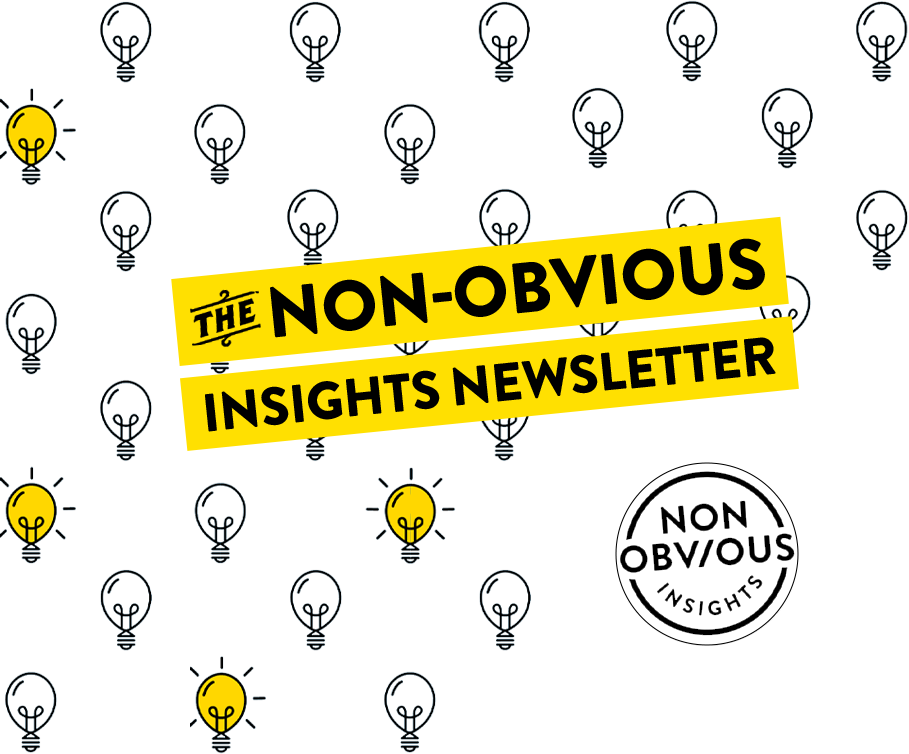


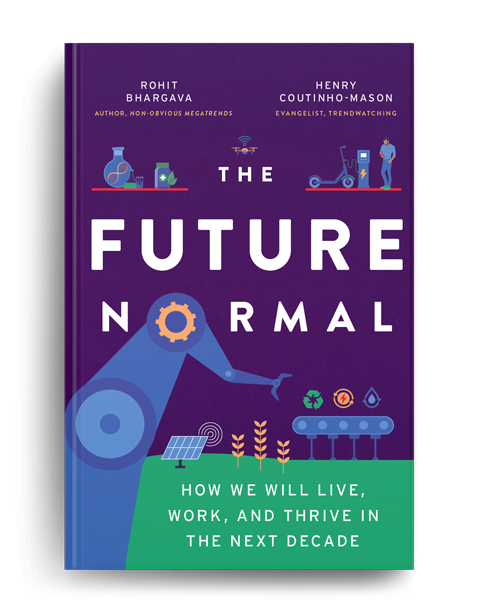
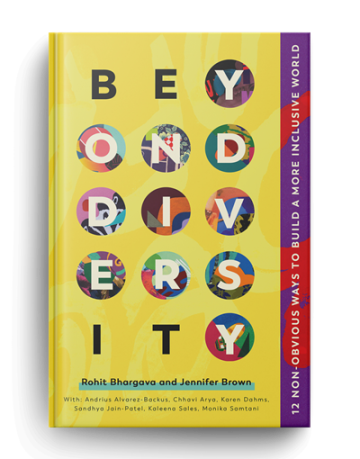
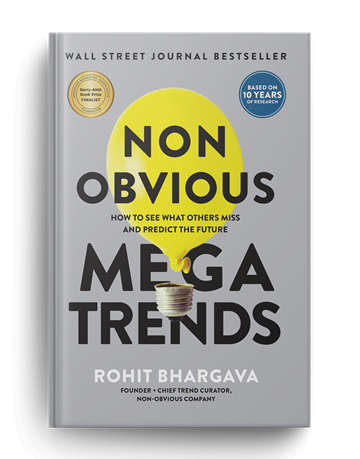

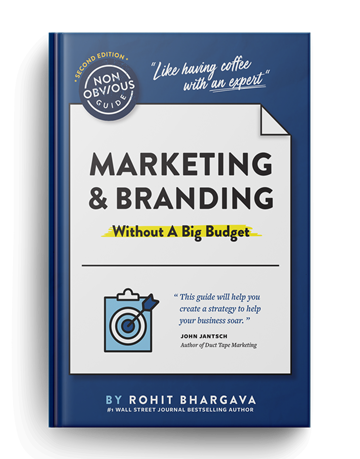

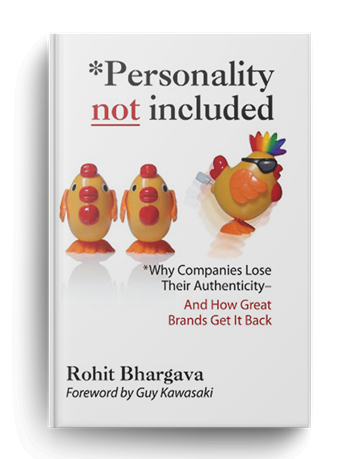
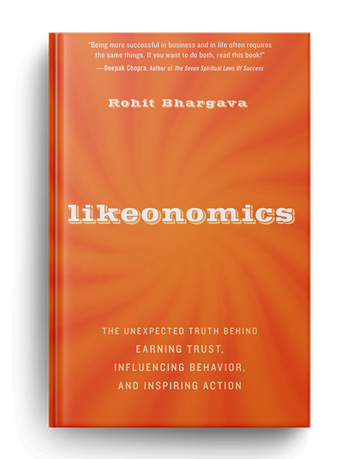


I really enjoyed this post, especially the “Be Consistent, not paranoid” paragraph. It is always interesting to see what different logo google comes up with on those special occasions!
I’m totally with you on number 4. I admire Google’s subtlety and finesse when they took over Blogger and YouTube. I love how instead of disrupting the peace in the websites that they acquired, the Internet giant chose to maintain and foster the relationships that existing users already had.
I agree that there’s a lot to learn from Google in terms of branding. Few companies exhibit the focus that Google does on what they are and what they do.
But I’d have to disagree with your assertion that “Google is a product company, and as such they develop new products all the time…”
Companies should be characterized primarily by how they make their money, which, in the case of Google, is selling advertising. That makes them a (new) media company.
On the flip side, I would argue that a good example of “branding in a panic” or in a reactionary manner is what MySpace did in the wake of its loss in market share. Maybe this is relatively small in the grand scheme of things, but making your new logo “MY” with a bracket next to it is pretty much the definition of being overly clever.
This is good information and one that often goes overlooked. Not to plug my blog – but I did a similar piece here which talks about branding yourself: https://rickyahuja.com/2011/03/10-ways-to-brand-your-blog-efficiently/
To their credit, Google appears to be a “learning company,” in that they learn from mistakes and build upon their successes. They are daring in the way they try new things.
The logo thing may not be something that trickled down from the top office, but at least they haven’t squelched these little touches of “personality” (yes, a reference to your book).
Buddy Scalera – https://www.wordspicturesweb.com
Great post. And I agree with Buddy: Google seems to be a learning company.
Jeff, Google are leading company, no buts 🙂
Being consistent is what matters most. Even though people do not click your ads or visit your website, all you need to do is to be consistent because people will not forever disregard your website. Just what I did when I was just starting to market in the internet. I used advancedwebads flat-free monthly service for unlimited banner impressions and clicks.
Google exhibits quiet confidence. Simple and clean is smarter. The clutter of the other big brand search homepages just starts my day off in a bad mood; much like walking into a room and everyone is screaming at you with their story.
It’s as if they’re in the play yard saying to the other “cliques”… “you guys go ahead and compete, we’ll stay over here and build our little brand”
Google has become a household name. I just commented to a friend the other day how my parents used to say; “look it up in the dictionary” now I tell my kids; “just go Google it”
just my two cents.
Google teaches us much about simplicity, user experience, etc. However, in my mind it was having breakthrough technology at the right time, maintaining their competitive advantage, and providing win/win solutions (e.g. adsense) that have helped them most.
Google has some pretty big shoes to fill, but if you follow their corporate strategy and philosophy, I can’t imagine you would go wrong. Google is 1 amazing company that is looking to add value in everything they do and still have time to keep the startup feelings going strong. I am so hooked in to Google and really love everything about them.
There really is a lot to learn from Google. They are the number one search engine for a reason. They have taken all of the right steps to establish themselves as a powerhouse brand.
Love Love Love #3. Make yourself easily identifiable. Branding is the most important aspect of marketing, the stronger your brand consistency, the more people recognize and remember you.
I really do like the simplicity google offers. However Don’t Be Evil as one of their corporate values is reassuring, because there is a lot of talk how google saves all your personal and search information and we should watch out for them. I think google sees it has been successful by benifiting users of it’s products that they won get greedy. Google positioned itself as a leader and does not want go lose it’s influence.
Mike – https://fruitsforweightloss.com
Being a new entrepreneur, I look for as much helpful information as possible. What I walked away with most from this article is hold true to your idea. Try not to sway even when competition is influencing your confidence. Great article! Donna http://www.healingtouchpottery.com
This was a very interesting read Rohit, I think of the five lessons the one which I consider most fundamental is the mission. Branding begins from a commitment to a purpose greater than just making profits. Google is what they are today, because the core of all they do, they put their mission [purpose] first and every other thing else second. The consistency of the brand is made possible because of their dedication to fulfill their mission.
The lesson for entrepreneurs in this case study of Google is to realize that building a strong brand is hinged upon a purpose that far outweighs just being profitable. So the big question then is; what greater purpose is your brand fulfilling?
Thank you for this. It was well created.
I really enjoy it every time Google changes up their logo to celebrate something or someone. It takes so much creativity to incorporate a famous event or person’s identifier into their logo. Although it would be tacky to do the same thing with your own logo, we can still learn from their consistency.
Like with you Kathryn McDwell, I have enjoyment too. Their regular changing of logo gives more excitement to surf and surf in the internet.